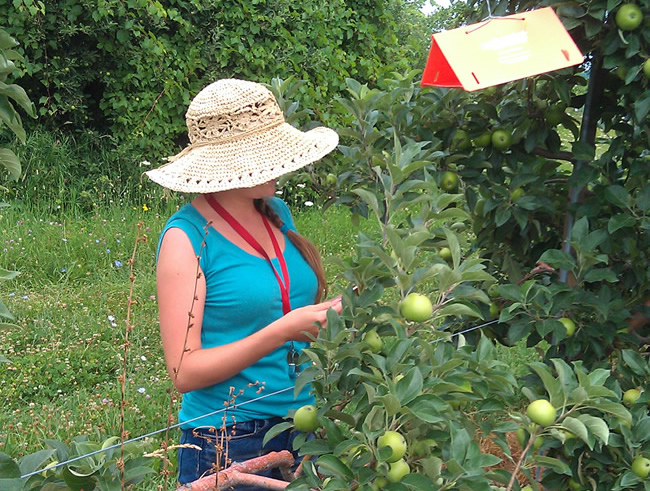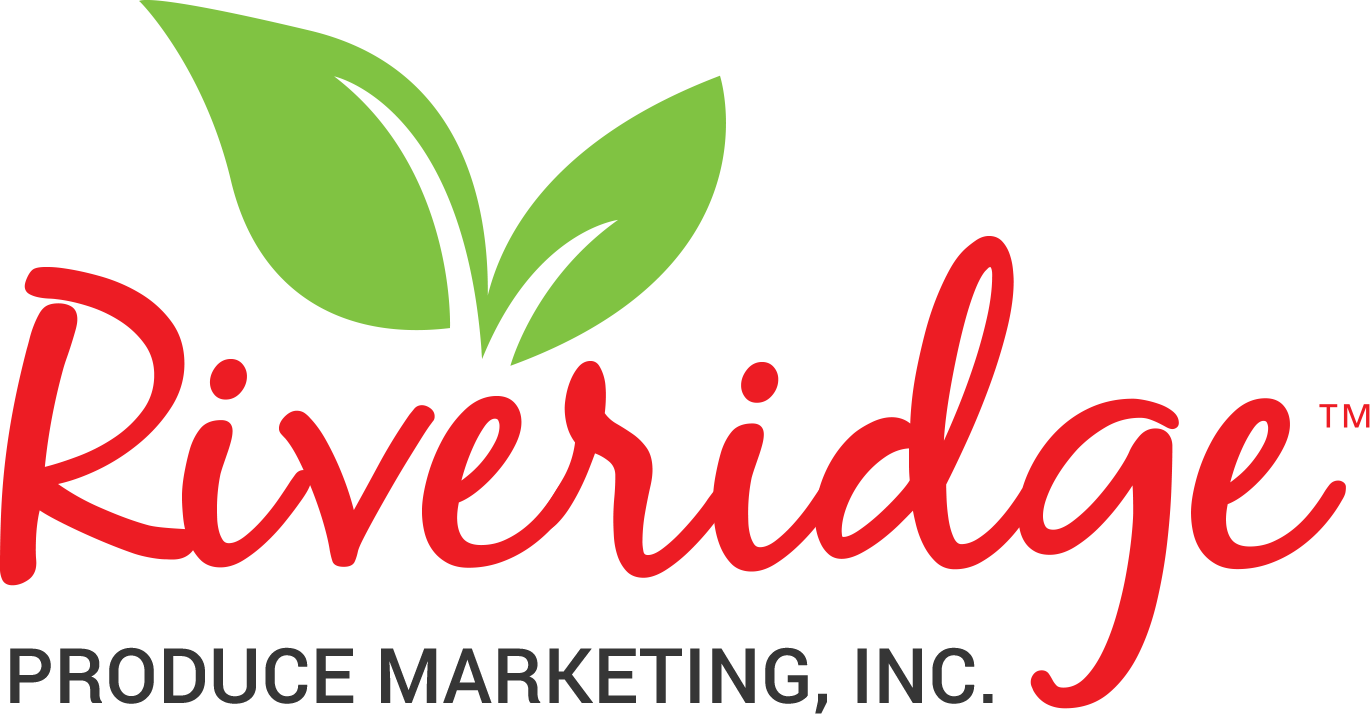Disease & Pest Control

Over the years apple producers in the Eastern and Midwestern U.S., including Riveridge, have significantly changed their growing practices.
In the 1980s and earlier, growers applied crop inputs according to calendar dates.
But a quiet revolution has occurred via Integrated Pest Management (IPM).
With IPM, most growers are using …
- Insect traps to monitor (not control) insect populations;
- Insect scouts (entomologists) to monitor traps and make recommendations on crop inputs;
- Pheromones (insect sex scents) to disrupt mating, foiling the next generation(s) of bugs;
- On-farm weather stations and computer models to predict disease.
All of these tactics allow growers to more precisely deliver pest, insect and disease control. In turn, this reduces chemical use and achieves better control of “bad bugs” and diseases.
- In addition to IPM, Riveridge has implemented other best practices such as . .
- “Smart sprayers” apply crop inputs directly to the tree rather than the air space around it;
- Participation in large multi-farm insect mating disruption projects, which are highly effective in reducing insect populations.
Does Riveridge have organic production?
While Michigan apple growers have reduced the amount of insecticides by about 70 percent since the 1980s, the Great Lakes environment does not allow production of store-quality certified organic apples on a commercial basis.
So we’re closer to all-natural production than ever, but we’re not fully organic.
Michigan’s humid, rain-twice-a-day climate in spring creates conditions that encourage diseases such as scab and fireblight. And there are virtually no organic substances for disease control.
Apples grown thousands of miles away in desert-like climates can be certified organic, mostly because moisture is absent. But then they must divert water from rivers to keep the trees alive, and truck the apples several hundred miles to the customer.
What Riveridge growers do exceedingly well is produce store-quality apples from family farms that receive mostly natural rainfall courtesy of the Great Lakes – the world’s largest reserve of fresh water.
